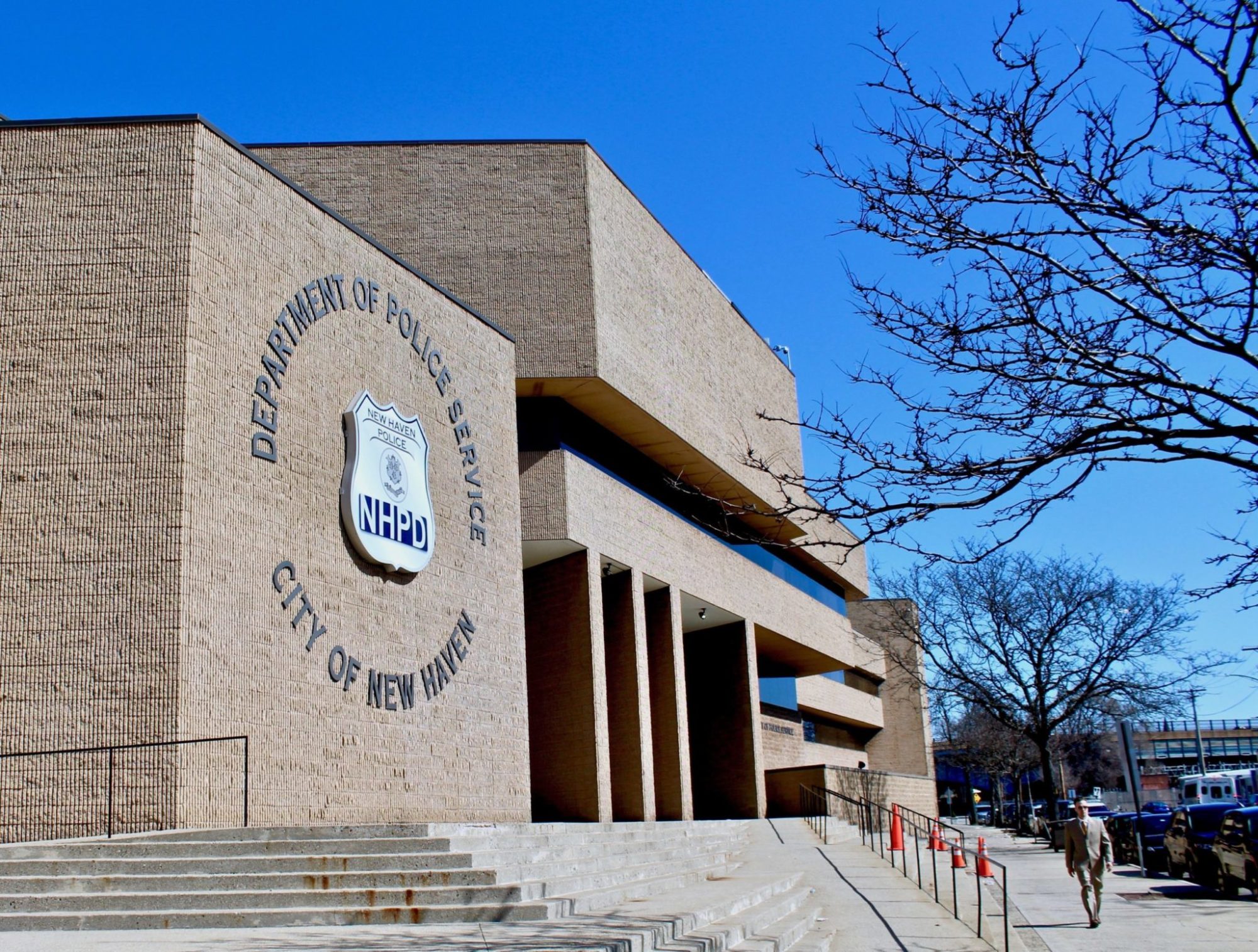
Adrian Kulesza, Staff Photographer
On Oct. 13, the New Haven Police Department introduced a policy that aims to increase the number of police officers in the department.
The policy, entitled General Order 2.15, looks to grow the number of lateral and comparative certification transfers into the department. These transfers would consist of trained police officers from other departments within Connecticut and nationally. The policy follows a number of recent efforts to draw in recruits, both lateral and entry-level, after the department has seen a significant reduction in size over the past few years. General Order 2.15 was passed unanimously by the Board of Police Commissioners and comes amid rising concerns surrounding officer shortages.
“We just want as many folks to apply as humanly possible,” said Lieutenant David Zannelli, head of the New Haven Police Department’s Internal Affairs, in an interview with the News.
The order would enable the creation of two separate eligibility lists, one for entry-level recruits and a different one for lateral and comparative certification recruits.
According to Zannelli, recruits on the lists are ranked based on their performance in test scores and are accordingly reviewed by the Board of Commissioners. Candidates at the top of the ranked list are considered first.
Zannelli, who served as a cop in Rhode Island for two years before coming to New Haven, said he had to apply here in New Haven through the entry-level process even though he had already had experience as an officer. The new two-list policy would avoid situations like Zannelli’s and streamline the process for lateral transfers.
Anthony Dawson, chair of the Board of Police Commissioners, echoed this sentiment. In an interview with the News, he explained that the policy was created in line with Connecticut’s Police Officer Standards and Training Council guidelines for lateral transfers. He added that this uniformity across the state would serve to “increase transparency and efficiency” in the hiring process.
In a Sept. 8 meeting of the Board of Commissioners, New Haven Chief of Police Otoniel Reyes, announced that “one of the department’s primary focuses is to replenish the force.”
Under the tenure of New Haven’s previous mayor Toni Harp, budgetary restrictions necessitated a cut in the NHPD’s staffing capacity from 495 to 455 officers, according to Zannelli. Also due to budgetary concerns, New Haven mayor Justin Elicker further decreased the department’s capacity to 406 this year. However, the current number of active police officers is at 349.
The NHPD has been struggling to fill these 57 vacancies. In 2016, when an existing police union contract expired, the department lost around 100 officers over the following three years — many of whom retired and others of whom sought jobs with neighboring departments, including Yale’s. A new contact put in place in 2019 took steps including raising police pay to prevent a further decrease in the size of a police force.
However, after the death of George Floyd at the hands of police officers earlier this year and subsequent protests against police brutality across the nation, the department is finding it more difficult to recruit officers. Calls to defund and dismantle the NHPD swept the city this summer, and protesters have called to decrease police presence in New Haven.
“Certainly the civil unrest and media scrutiny have made recruitment difficult,” Zannelli said. “Nobody wants to be the next media sensation.”
However, Zannelli stressed that NHPD officer retention is a long-term issue. Recruitment numbers have fallen by more than a third since he began his career in New Haven 13 years ago, Zannelli said.
According to Reyes, this year is no better. At last month’s meeting, he cited a “very low turnout” of applications.
Sergeant Dana Smith, supervisor of recruitment for the NHPD, has visited universities, career fairs, military recruitment stations and even supermarkets in an effort to recruit within the community.
In an attempt to reach beyond New Haven, the department has utilized almost every tool, Zannelli said. They have made use of innovative social media campaigns and advertised through PoliceApp — a nationwide database for police officers — as well as through old school methods of billboards on highways and posters on city buses.
Ward 29 Alder Brian Wingate, vice-chair of the Public Safety Committee, said that he believes that this increased recruitment is a benefit to the New Haven community — despite calls from protesters about “bad cops.”
“Community-based policing takes additional cops,” Wingate said. “There are good people in this city that could be good cops.”
Whether the new General Order 2.15, alongside further recruitment efforts, will be successful in upping the numbers at the NHPD remains to be seen. Zannelli, however, said he was optimistic — saying that the NHPD already had some lateral transfer candidates on their list.
“With the folks that are from this community and want to make a difference, we still get some to apply,” Zannelli said. “And we hire as many as we can.”
General Order 2.15 has been finalized and will go into full effect next month.
Vanika Mahesh | vanika.mahesh@yale.edu







